
As part of our monthly clinician spotlight, NeurologyLive® highlighted neuromuscular-associated cardiomyopathy expert Forum Kamdar, MD, PhD, FACC, FHFSA, an advanced heart failure physician-scientist at the University of Minnesota.

Isabella Ciccone, Content Associate, NeurologyLive®, has been with the team since September 2022. Follow her on X @iciccone7 or email her at [email protected]

As part of our monthly clinician spotlight, NeurologyLive® highlighted neuromuscular-associated cardiomyopathy expert Forum Kamdar, MD, PhD, FACC, FHFSA, an advanced heart failure physician-scientist at the University of Minnesota.

Path to Prevention is a platform, phase 2 trial that will investigate the safety and efficacy of investigational interventions in patients neuronal α-synuclein disease stage 2B.

Findings from a new study presented at MDS 2024 suggest that variations in cholinergic denervation patterns may hold promise for differentiating Parkinson disease and progressive supranuclear palsy with parkinsonism.

The consultant neurologist at Queen's Square MS Center in London gave his clinical viewpoint on the newest revision of the McDonald criteria for diagnosing patients with multiple sclerosis. [WATCH TIME: 3 minutes]

The chief research officer of the Muscular Dystrophy Association talked about what is to be expected at the 2025 MDA Conference, held March 16-19, in Dallas, Texas. [WATCH TIME: 5 minutes]

The approval follows phase 3 data that showed significant improvements in neurological symptoms and functional benefit over 12 weeks in patients with Niemann-Pick disease type C.

Zevra Therapeutics plans to immediately start its launch activities for arimoclomol, marketed as Miplyffa, which is anticipated to be commercially available in 8 to 12 weeks in the United States.
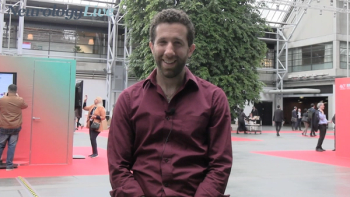
The postdoctoral researcher at Amsterdam University Medical Center talked about the DAAE score 2.0 which offers an improved, validated clinical tool to predict the risk of transitioning to secondary progressive multiple sclerosis. [WATCH TIME: 5 minutes]

The consultant neurologist at Queen's Square MS Center in London discussed the shift in the updates to the McDonald criteria for multiple sclerosis presented at ECTRIMS 2024.

The phase 1b/2a dose escalation trial of KINE-101, conducted in Korea, includes patients with chronic inflammatory demyelinating polyneuropathy who have received at least 1 frontline treatment regimen.
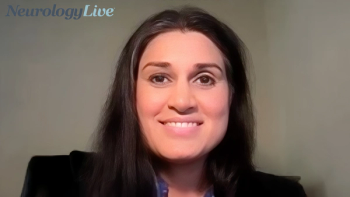
In honor of Restless Legs Syndrome Awareness Day, held September 23, 2024, the American Academy of Sleep Medicine spokesperson talked about the condition and its impact on the United States population as well as the criteria to diagnose it. [WATCH TIME: 3 minutes]

A new study presented at ECTRIMS 2024 revealed that 80% of patients with relapsing multiple sclerosis had an estimated no evidence of disease activity rate at both 3 and 4 years when discontinuing cladribine tablets.

Results showed that the immune response observed in patients with multiple sclerosis was specifically modified by treatments interfering with Epstein-Barr virus hosts cells or activated lymphocytes.

In a phase 3 study, tolebrutinib demonstrated a statistically significant delay in time to onset of confirmed disability progression in patients living with non-relapsing secondary progressive multiple sclerosis.
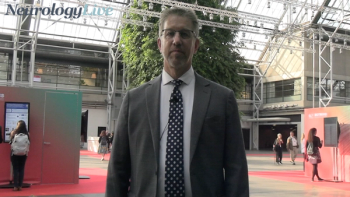
The staff neurologist at the Mellen Center for Multiple Sclerosis at Cleveland Clinic talked about a promising therapy that slows the progression of disability in non-relapsing secondary progressive multiple sclerosis. [WATCH TIME: 2 minutes]

The associate professor of neurology at Harvard Medical School discussed a study presented at ECTRIMS 2024 that compared the effectiveness and safety profiles of FDA-approved NMOSD therapies with other commonly used treatments. [WATCH TIME: 4 minutes]
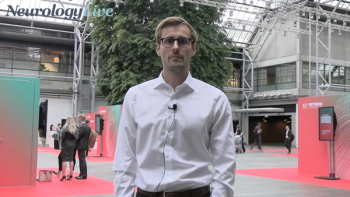
The neurology resident at the University Hospital Frankfurt in Germany talked about a study presented at ECTRIMS 2024 that analyzed time delays in initiating high-efficacy treatments in patients with multiple sclerosis. [WATCH TIME: 4 minutes]

A large-scale study presented at ECTRIMS 2024, conducted by the Alliance for Research in Hispanic MS Consortium, identified ancestry-specific genetic factors that influence the risk of developing multiple sclerosis.

Based on findings from the study, investigators stressed the need for better streamlined access to high-efficacy therapies for pediatric patients with onset multiple sclerosis.

The consultant neurologist at Imperial College Healthcare Trust discussed a proposed concept of smoldering disease in multiple sclerosis that covers progressive symptoms that go beyond traditional focal inflammatory activity.

The agent is composed of 2 active ingredients with synergistic anti-oxidant and anti-inflammatory effects which can reduce brain cell injury or impairment caused by acute ischemic stroke.

A 28-year-old patient initially diagnosed with Guillain–Barré Syndrome presented with multiple cranial neuropathies and was later rediagnosed with chronic inflammatory demyelinating polyneuropathy.

The consultant neurologist at Imperial College Healthcare Trust discussed how smoldering MS challenges traditional views of disease progression, seeking combined therapies targeting both inflammatory activity and mechanisms driving smoldering-associated worsening. [WATCH TIME: 4 minutes]

A recent study suggests that patients with chronic inflammatory demyelinating polyneuropathy lacking nerve conduction study evidence of demyelination can still respond positively to immunomodulatory therapies.

A recent study showed that an increase in anti-hepatitis E virus seroprevalence in patients with chronic inflammatory demyelinating polyneuropathy was not a consequence of intravenous immunoglobulin therapy.

The consultant neurologist at Imperial College Healthcare Trust highlighted the importance of acknowledging smoldering multiple sclerosis, urging a shift in therapeutic focus beyond relapses and advocating for a new approach to disease management. [WATCH TIME: 5 minutes]

Results revealed that adjunctive treatment with intravenous argatroban or eptifibatide was associated with increased mortality in acute ischemic stroke treated with intravenous thrombolysis.
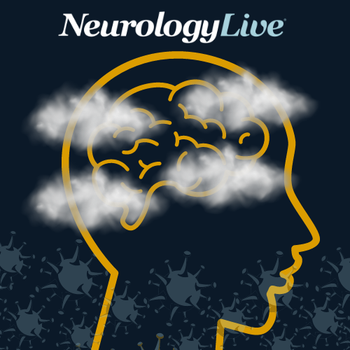
Recent data and conversations with experts highlighted the increasing concern of Long COVID’s impact on the brain in patients who have been previously infected with the virus.

The postdoctoral researcher at Amsterdam University Medical Center talked about a tool that helps assess the likelihood of transitioning to secondary progressive multiple sclerosis, allowing clinicians to make informed treatment decisions in a timely manner.

The consultant neurologist at Imperial College Healthcare Trust talked about how smoldering disease in multiple sclerosis encompasses disease progression independent of relapsing activity, thus broadening the scope beyond traditional measures. [WATCH TIME: 4 minutes]